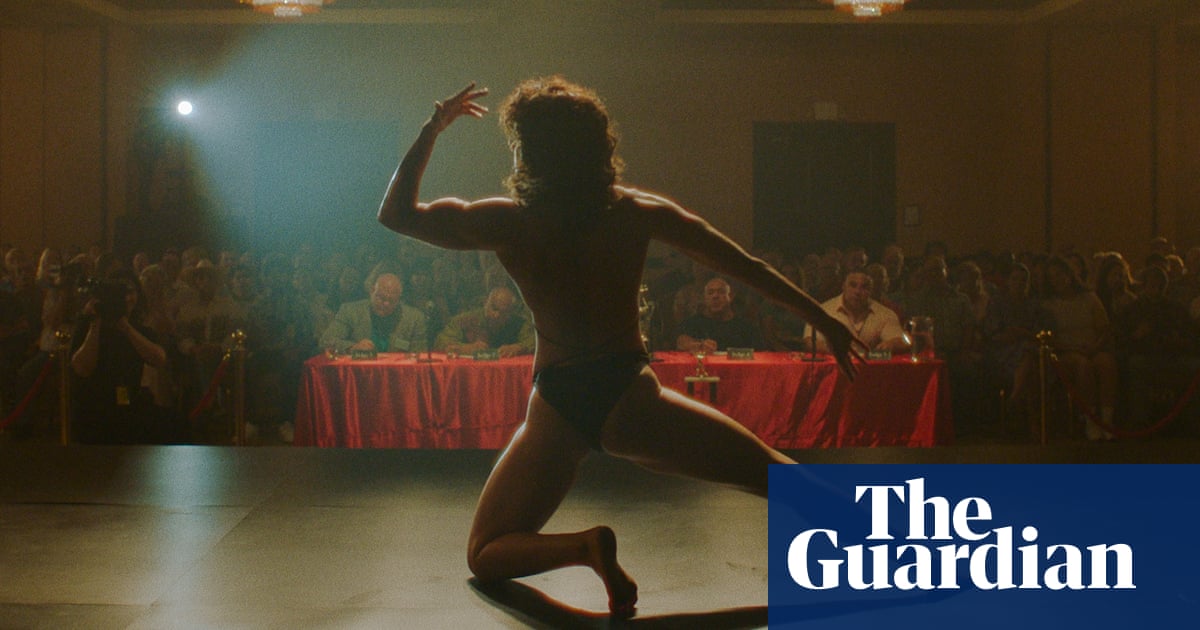Sports
Mixed doubles: why queer erotic sports cinema is enjoying a grand slam

This spring is shaping up to be the season of the artful athletic romance in cinema. Rose Glass’s Love Lies Bleeding and Luca Guadagnino’s Challengers both offer up their own twisted queer romances set within the world of sport. Both film-makers share a preoccupation with their athletes, lingering over their bodies in ultra-closeup. Muscles ripple and swell like the powerful pulse of the tide. Perfect, glistening orbs of sweat form then drift off the body in slow motion. In these films, ripped, toned bodies become tantalising, treacherous landscapes, and it’s on this physical terrain that we can see exactly how and why the characters’ internal desires play out.
Love Lies Bleeding opens with a pulsating montage in a grimy gym as Glass confronts us with running, cycling, lifting, pressing bodies in all of their sweating, straining vulgarity. Meanwhile, Lou (Kristen Stewart), the uninspired gym manager, is sticking her hand down the venue’s perpetually clogged toilet. However, when Jackie (Katy O’Brian), a wannabe bodybuilder, rolls through town, all this grotesquery becomes a thing of beauty. They begin a romance. Lou pumps her lover full of steroids and constantly ogles her dense muscles.
Similarly, the high-octane Challengers lingers deliberately over its bodies in motion. Former tennis prodigy Tashi (Zendaya) has a hold over tennis champs and ex-friends Patrick and Art – they fancy her, but also each other. After Tashi’s career is cut short due to injury, she becomes Art’s coach, whipping him into shape, hoping to regain the raw euphoria she felt when she was competing. The power plays between this threesome may happen off the court, but when the two men pick up their rackets, there’s real chemistry: the camera zeroes in on their dripping lines of sweat, their flexing calves and their bulging biceps.
The sports romance is hardly a new genre. We’ve seen plenty of athletes falling rather more chastely for each other on screen over the years: think Kirsten Dunst and Paul Bettany in the 2004 romcom Wimbledon, or Parminder Nagra and Jonathan Rhys Meyers in 2002’s female football flick Bend It Like Beckham. What is more rare is the use of the niche of a physical sport as a metaphorical arena in which internal desire in all of its complexity can be realised physically on the screen. The 1982 romance Personal Best, which follows a lesbian couple on a track team, leaned a little into this territory, homing in on its characters’ physicality in artful detail.
But these two new films have less in common with those sports romances than they do with the cinematic tradition of body horror – films such as David Cronenberg’s The Fly or, more recently, Julia Ducournau’s Titane, in which characters go through curiously inventive, grotesque brutalities, leaving the viewer squirming.
Love Lies Bleeding is Glass’s second feature after her 2019 psychological horror Saint Maud, which showed her to be proficient at crafting this kind of physical repulsion. In her latest film, she uses the same techniques she perfected in her debut outing: Jackie shoots herself full of steroids and, as we zoom in on her muscles bulging ever bigger, threatening to burst through the skin altogether, a horrible tearing sound echoes out. Elsewhere in the film, there are other gruesome body horror moments. When Jackie kills Lou’s abusive brother-in-law, for instance, she leaves a grisly scene, his jaw dangling off the side of his head.
Over on Guadagnino’s courts, too, things sometimes get a little sickening. The thunderous whack of the ball and guttural cries of the players are practically deafening. Then there’s Tashi’s awful knee injury, which is shown in a little more stomach-turning detail than you’d expect, Guadagnino hovering close to the skin and the twisted bones below. (Like Glass, he’s coming straight from a more traditional body horror project: Bones and All, with Timothée Chalamet and Taylor Russell playing cannibals in love, feasting on gory flesh in between their quiet flirtations.)
But mostly, these films only ever edge towards the horrific before swinging back into more emotional territory. They use the techniques of body horror in a new way: getting up close and personal with these athletes in moments of sporting prowess but also athletic brutality reminds us that these are relationships that always teeter between the beautiful and the horrific.
after newsletter promotion
Lou’s desire for Jackie, just like Tashi’s desire for both men, is obsessive, a little dark. Lou is tortured by memories of her crime boss dad’s wrongdoings – Jackie, with her physical strength and impulsive, murderous nature, is both an escape route and a dark reminder of that past. Similarly, Tashi is plagued by her inability to do the thing she loves most: playing tennis. In coaching and watching from the sidelines, she gets a little closer to what she has lost.
Both film-makers end their films with gutsy, surreal displays of physicality. What if, they seem to ask, these athletes really did reach the physical perfection they so desperately seek? Well, when they do, the other characters finally get a taste of what they’ve been yearning for – and it’s just as personal as it is romantic. For Lou, it’s wrapped up in the desire for freedom, while for Tashi, it’s about finally watching her men get down and dirty, fight it out, and deliver a really excellent game of tennis.
As these film-makers stretch the boundaries of the sports romance, it’s an exciting reminder of just how visceral the genre can be. After all, sometimes a good, twisted romance can leave us with an even stronger physical reaction than the goriest horror film.










